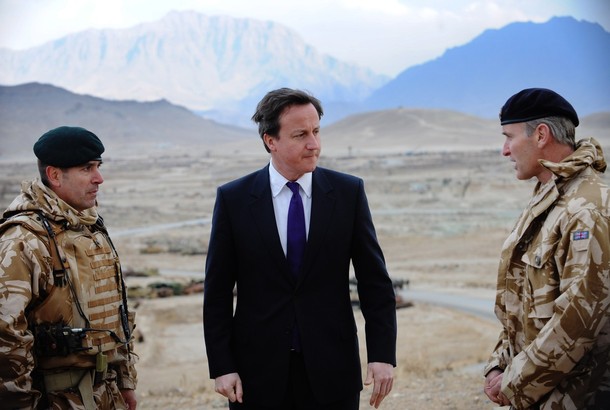
From the Financial Times: [British Prime Minister David] Cameron’s task now is to explain where the strategy is heading. He must emphasise three points. First, the US troop surge needs time to work. There can be no reassessment of policy until June 2011, when the surge will begin scaling down. There will be setbacks ahead. But hopefully, by early 2011 Nato will be visibly bearing down on the insurgency.
Second, the UK is in a tactically stronger position in Helmand than a year ago. Then, the UK was stretched because it fought a vigorous insurgency almost alone. Now, the UK is joined by some 20,000 US troops. Britain will still suffer casualties. But it is not fighting in Helmand single-handed.
Above all, Mr Cameron must resist giving a timetable for withdrawal. In his final year in office, Mr Brown made a bad habit of setting dates for the handover of districts to Afghan control. Such short-termism must be resisted. Afghanistan will not be transformed into a western-style democracy. But Britain should only leave when there is a reasonable chance that the Afghan government can manage security on its own.
The Obama administration is not waiting until June 2011 and will begin its "reassessment of policy" in December 2010.
From the United States Institute of Peace: In December 2010, the United States will evaluate progress made toward the primary objectives President Barack Obama laid out last December in his speech at West Point: reverse the momentum of the Taliban insurgency, enhance the capacity of the Afghan government and partner with Pakistan. The outcome of this assessment, as well as independent reports, will set the tone for debates across the U.S. and Europe, and Afghanistan, Pakistan, and the region about what should happen in July 2011, when President Obama said that the U.S. will begin withdrawing U.S. forces from Afghanistan.
Excerpt from The Road to Succesful Transition in Afghanistan: From Here to the December 2010 Review, by William B. Taylor Jr. and J. Alexander Thier. (photo: Getty)
Image: getty%206%207%2010%20David%20Cameron%20Kabul%20Afghanistan.jpg
